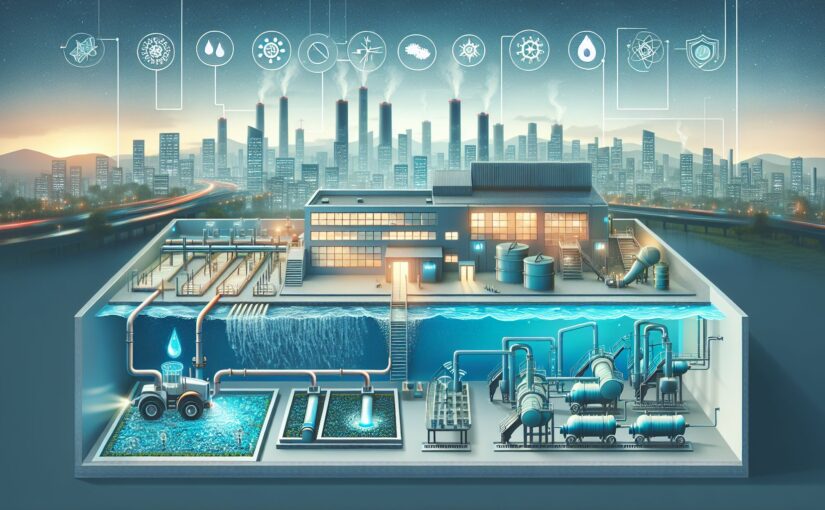Water is an indispensable resource, and treating wastewater has always been a significant concern to maintain environmental health. But what if we look at wastewater not as a burden but as a potential resource? Fascinatingly, wastewater has emerged as a promising source of renewable energy in recent years.
Wastewater Treatment
Wastewater treatment, a necessary step in the urban water cycle, consumes a vast amount of energy, attributed mainly to the activated sludge process. However, advancements in biotechnology have paved the way for the extraction of energy locked inside this ‘waste.’ Scientists are turning to wastewater to produce sustainable energy and capitalize on the green revolution.
Wastewater – An Energy Bank
It might surprise you, but wastewater is a rich storehouse of chemical energy. Organic matter that exists in wastewater can be converted into bioenergy, and what tops it off – this source is renewable and inexhaustible. If leveraged on a grand scale, wastewater can provide a sustainable solution to the increasing energy demands, potentially reducing reliance on fossil fuels.
Microbial Fuel Cells (MFCs) – The Game Changer
Microbial Fuel Cells (MFCs) play a crucial role in this entire process. MFCs use organic matter in water and convert it into electricity, thanks to the bacteria that act as bio-catalysts. These systems hold tremendous potential for energy-efficient wastewater treatment. Furthermore, the byproduct of this process is relatively clean water (though not drinkable) that can be recycled for various industrial or agricultural purposes.
The Big Picture
Imagine cities where treatment plants are not just wastewater disposal facilities, but are local energy centers providing power to the grid. It may seem like a fantastic future but with the rapid advancements in the field, it could soon be a reality. Harnessing potential energy from wastewater not only provides an eco-friendly power source but also curtails greenhouse emissions – a double whammy for combating climate change.
The path towards transforming wastewater into renewable energy is not devoid of challenges, notably in the scalability and efficiency of the technology. However, continuous research and development in this dynamic field promise brighter prospects.
Even in its nascent stage, wastewater energy shows promise as a gamechanger in our strategies toward sustainable living, opening up new horizons for cleaner, greener energy solutions.
Sources
1. Logan, B. E., & Rabaey, K. (2012). Conversion of wastes into bioelectricity and chemicals by using microbial electrochemical technologies. Science, 337(6095), 686-690. Link
2. Heidrich, E. S., Curtis, T. P., & Dolfing, J. (2011). Determination of the internal chemical energy of wastewater. Environmental science & technology, 45(2), 827-832. Link
3. Pant, D., Van Bogaert, G., Diels, L., & Vanbroekhoven, K. (2010). A review of the substrates used in microbial fuel cells (MFCs) for sustainable energy production. Bioresource technology, 101(6), 1533-1543. Link
